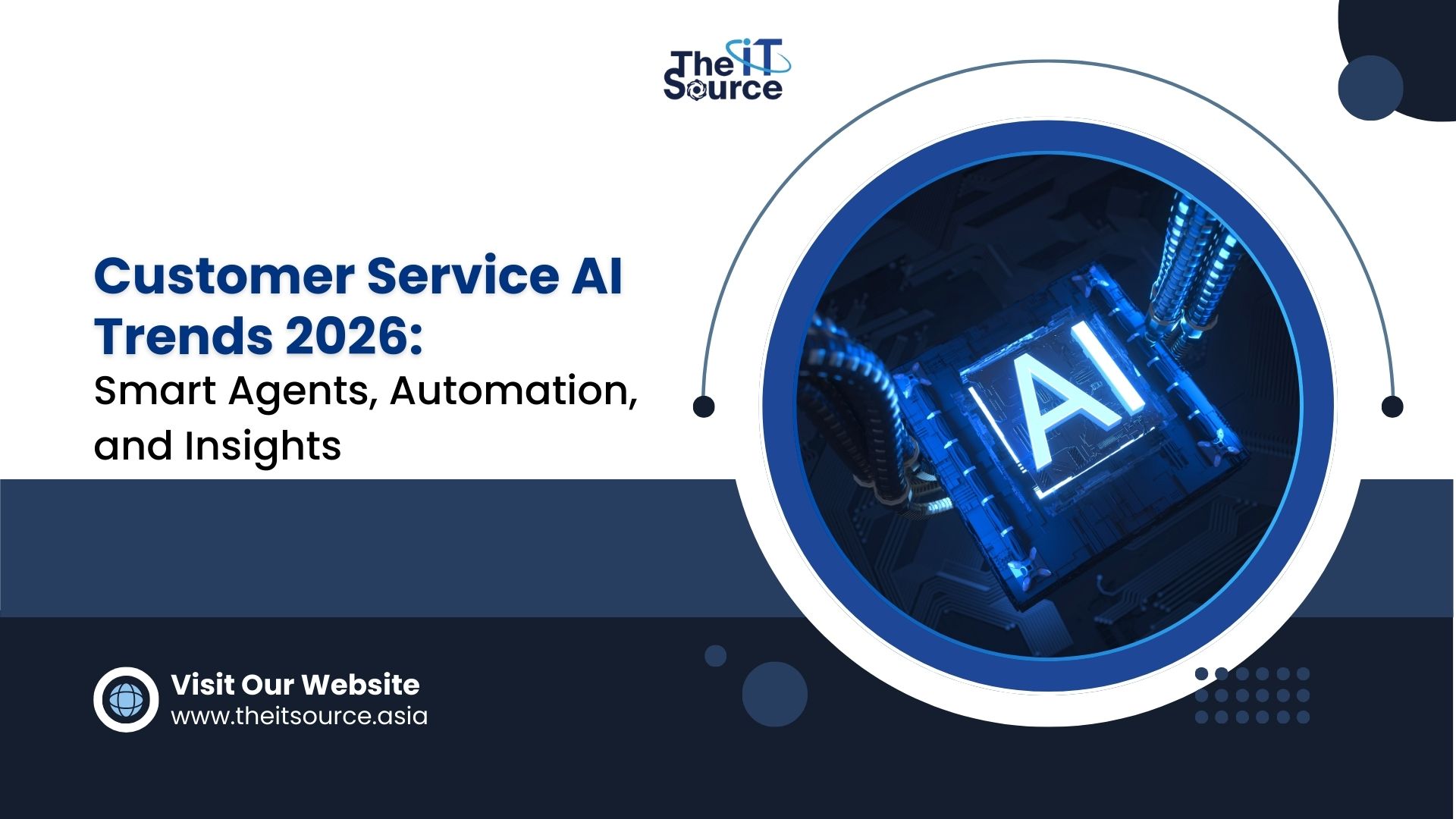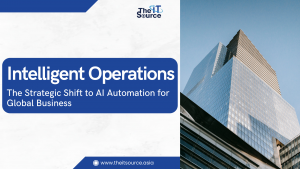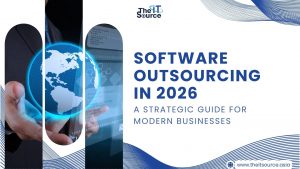Customer service AI trends 2026: Smart agents and automation

From tech tool to strategic advantage
In the evolving landscape of European B2B services, customer experience has rapidly become a differentiator. No longer viewed as just a support function, it is now a strategic lever that impacts trust, loyalty, and even revenue.
Senior decision-makers especially in industries like IT, finance, logistics, and trade are no longer tolerant of long response times or generic service scripts. They demand frictionless support across digital channels, personalized interactions, and instant resolutions.
That’s where Customer Service AI enters the picture. Far beyond chatbots of the past, today’s AI services are intelligent, adaptive, and scalable. With advanced AI agents and automation tools, businesses can deliver consistent, real-time, and personalized service while reducing operational costs. The European market, known for its regulatory rigor and demand for quality, is at the forefront of this transformation.
Generative AI becomes the norm yet differentiation lies in depth
By 2026, Generative AI will have shifted from novelty to necessity. In European markets, where GDPR and the AI Act emphasize transparency and data protection, businesses can’t just deploy any model they need solutions that are not only powerful but explainable and ethical.
Generative AI is now powering customer service in three key ways:
- Contextual understanding: AI systems trained on multilingual, domain-specific data can interpret nuanced queries better than ever an essential feature in Europe’s diverse linguistic and cultural environment.
- Content generation: AI can create personalized knowledge articles, real-time responses, and dynamic conversation flows tailored to the customer’s industry and intent.
- Feedback loops: The best systems incorporate customer feedback to refine responses critical in B2B, where accuracy impacts contracts, compliance, and service-level agreements (SLAs).
According to Salesforce’s State of Service Report, 68% of service professionals in Europe believe AI helps them deliver more empathetic customer support, contradicting the myth that automation strips away the human touch.
Multimodal and emotion-aware AI reshapes agent empathy
In B2B interactions, tone and timing matter just as much as content. That’s why emotion-aware AI has seen exponential growth. Multimodal models now analyze not only the words a customer uses but also their tone, typing speed, pauses in speech, and even sentiment trajectory across previous conversations.
This matters in Europe more than anywhere else. Cultural communication styles in France, Germany, the Nordics, and Southern Europe differ dramatically. AI models that can tune tone and language style accordingly have proven to decrease escalation rates by up to 30% in pilot programs run by large EU telcos.
Emotion-aware AI agents act as empathy boosters for human reps. They flag frustrated users before escalation, suggest calming language for tense moments, and reduce average handle time (AHT) without sacrificing quality. According to IBM, companies using AI to detect and respond to emotion in real time see customer satisfaction scores increase by up to 22%.
Agentic AI transforms from tool to autonomous teammate
The concept of Agentic AI a collection of self-driven AI agents that collaborate to solve complex tasks is no longer theoretical. In 2026, we’re seeing real-world applications across Europe’s enterprise environments.
Take, for example, a pan-European software vendor that handles tens of thousands of client support cases annually. By implementing agentic AI:
- One AI agent triages incoming requests based on urgency and topic.
- Another accesses the documentation and generates a draft solution.
- A third AI verifies compliance against EU industry regulations before delivery.
- Human reps step in only when confidence thresholds aren’t met.
This multi-agent system reduced resolution time by 48% and increased customer retention by 17% in the first two quarters.
In highly regulated industries like financial services, agentic AI enables institutions to deliver AI services with auditability, traceability, and consistency. That’s why Forrester predicts 40% of large EU enterprises will adopt some form of agentic AI architecture by 2026.
Back-office automation creates invisible but essential gains
While most discussions around Customer Service AI focus on front-end interactions, some of the biggest efficiency gains happen behind the scenes.
European organizations are using AI services and Robotic Process Automation (RPA) to:
- Automatically update CRM records post-call.
- Trigger follow-up actions like satisfaction surveys, contract reminders, or product recommendations.
- Generate summary notes and case histories in multiple languages for global teams.
These automations don’t just save time, they reduce error rates, ensure GDPR-compliant documentation, and allow human agents to focus on high-value, emotionally intelligent conversations.
Companies like Zurich Insurance, Deutsche Telekom, and ING have deployed AI-driven automation across their contact centers, seeing cost savings between 20–35% within the first year (Business Insider).
AI-enabled smart routing puts the right case in the right hands

AI-enabled smart routing puts the right case in the right hands
Routing used to mean simply assigning tickets to available agents. But in 2026, with the help of Customer Service AI, routing is predictive, dynamic, and value-based.
Here’s how it works:
- An incoming request is analyzed by an AI agent that reviews the customer’s historical satisfaction, issue type, urgency level, and current sentiment.
- Based on this data, the AI matches the query to an agent with the best track record for similar cases not just the next available one.
- If no suitable human is available, the AI either holds the case or attempts automated resolution with escalation protocols.
This smart routing is especially effective in multilingual markets like Belgium or Switzerland, where language matching and cultural nuances heavily affect customer satisfaction. It also supports omnichannel consistency, ensuring that a chat started on web continues seamlessly via email or phone.
Strategic adoption in Europe: It’s not just tech, it’s trust
In Europe, deploying Customer Service AI isn’t just about performance; it’s about compliance, trust, and ethics. Companies must align with:
- The EU AI Act: requiring risk classification, transparency, and human oversight.
- GDPR: ensuring data privacy and control at every AI touchpoint.
- Consumer expectations: European buyers demand clarity, disclosure, and responsible AI use.
Success lies in transparent onboarding clearly indicating when AI is being used and why. Case studies from leading companies show that ethical AI adoption correlates with customer loyalty, especially among decision-makers in finance, IT procurement, and healthcare.
Moreover, education plays a big role. Enterprises offering whitepapers, case studies, and product demos not only showcase their AI’s value they build trust and shorten sales cycles in the B2B buying journey.
AI is not a shortcut it’s a long-term partner
In 2026, Customer Service AI is more than a cost-cutting tool it’s a scalable, strategic asset that can boost productivity, elevate customer experience, and increase brand credibility across Europe.
But real value doesn’t come from adopting AI for its own sake. It comes from thoughtful implementation: pairing technology with transparency, integrating AI with human workflows, and always staying aligned with the cultural and regulatory values of the European customer.
As businesses embrace AI from intelligent routing to autonomous agents and predictive automation those who do it right will be remembered not for how fast they answered, but how intelligently and respectfully they engaged.
Ready to transform your customer support with AI?
Whether you’re exploring automation for the first time or scaling an existing AI-driven service model, the right partner can make all the difference. At The IT Source is a global partner for software development and AI services, we help European enterprises implement secure, efficient, and future-ready customer service AI from smart agents to full automation pipelines.
Let’s discuss how we can support your transformation.
Contact us today to get a personalized consultation.


 日本語
日本語
